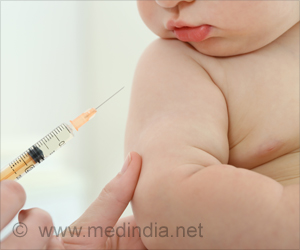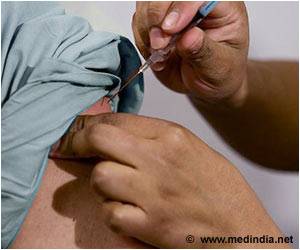World Immunization Week is observed between the 24th – 30th April and aims to ensure everyone is protected from deadly infections through vaccines and to celebrate vaccine heroes across the world who help to make this goal a reality.
Highlights:
- World Immunization Week is observed globally from 24th – 30th April to raise awareness about the importance of vaccination and to protect millions of people of all ages from disease through vaccination
- Vaccination programs are one of the most successful and cost-effective measures striving to reduce the burden of infectious diseases across the world
- The theme for this year 2019 is 'Protected Together: Vaccines Work!'
- This year, World Immunization Week campaign will honor vaccine heroes from all over the world including parents, health workers, innovators, and community members who play an important role in the success of vaccination programs
Read More..
History of World Immunization Week
World Immunization Week is one of eight campaigns started by the WHO. The World Health Assembly officially declared the World Immunization Week as an annual event during its May 2012 meeting. Prior to this, Immunization Week activities were observed on different days in various parts of the world. For the first time in 2012, World Immunization Week was observed simultaneously as a single event, with the participation of over 180 countries across the world.Objectives of World Immunization Week 2019
- Educating the public about the importance of vaccines for the overall health of children and communities all over the world
- Address gaps in existing programs to ensure maximum coverage by investing more efforts, health personnel, and funds
- Showing that immunization is the foundation for achieving universal health coverage and the basis for a stronger and healthier population
Why Immunization is Important?
- Improved access to immunization is key to achieving the Sustainable Development Goals, health for all and eradication of poverty
- Routine immunization (RI) is the foundation for strong health care systems at the beginning of life and provides every child the chance of better health throughout its lifetime
- Immunization also helps to protect populations from deadly infections such as hepatitis B, and controlling the emergence of antimicrobial resistance
- Provides a platform for optimal antenatal and neonatal care as well as teen health
Who are the Vaccine Heroes?
This year, the World Immunization Week campaign aims to celebrate the vaccine heroes who are people around the world doing their bit to protect us and prevent a wide range of diseases through vaccines, in some of the world’s most remote corners, most difficult terrains, and inhospitable situations. Therefore, it is necessary to honor these real-life vaccine heroes from health workers to community leaders, parents, children and those who develop and deliver the vaccines safely to ensure we remain protected together.What We Can Do to Raise Awareness About Immunization & Honor the Unsung Heroes
- Download the campaign posters and messages about immunization and share widely on social media such as Twitter and Facebook
- Make a personal contribution or raise funds to support the campaign and make immunization for all a reality
- Community and health care workers must visit slums and educate the women about the importance of immunization for the health of their children and families
- Primary health centers and community hospitals must display prominent messages about the benefits of immunization
- Administration must organize free immunization camps to encourage more people to get vaccinated
- Print and visual media should carry wide coverage about immunization programs and the vaccination schedule to ensure the message reaches every one
- Administration and NGO’s can offer awards to healthcare personnel who achieve maximum immunization coverage in their communities
- Parents who ensure immunization of their kids and families can also be offered health incentives
Vaccination Facts & Figures
- Immunization prevents nearly 2-3 million deaths each year
- A further 1.5 million deaths could be avoided if immunization coverage is improved
- Some of the diseases covered by immunization include childhood infections such as diphtheria, pertussis (whooping cough) and tetanus through DPT vaccine, measles, mumps and rubella (MMR vaccine), polio (oral polio vaccine), pneumonia, hepatitis B, meningitis, rotavirus diarrhea, and shingles
- Usage of newer vaccines is slowly increasing
- Global vaccination coverage remains at about 85 percent for the last few years with no major change
- Nearly 20 million children under 1 year did not receive the DPT vaccine as per the latest reports, and most of them live in 10 countries including India, Pakistan, African nations, Brazil, and Indonesia
- Polio has almost fully been eradicated from the face of the earth
- Maternal and neonatal tetanus is being eliminated in the American and Southeast Asian nations through routine immunization
- Talk to your doctor about vaccine requirements when traveling abroad and ensure that you are up to date
- Licensed vaccines are safe and effective having undergone stringent tests to ensure they are safe for you and your family
Summary
Immunization is key to improving child health as well as ensuring more robust populations and to achieving the goal of health for all. Let us all join together and do our part to ensure that we vaccinate our children and educate our communities on the importance of immunization in preventing the spread of contagious, dangerous, and deadly diseases.References:
- World Immunization Week- WHO - (https://www.who.int/campaigns/world-immunization-week/world-immunization-week-2019)
- World Immunization Week - (https://en.wikipedia.org/wiki/World_Immunization_Week)
- 10 facts on immunization - (https://www.who.int/features/factfiles/immunization/en/)
Source-Medindia












